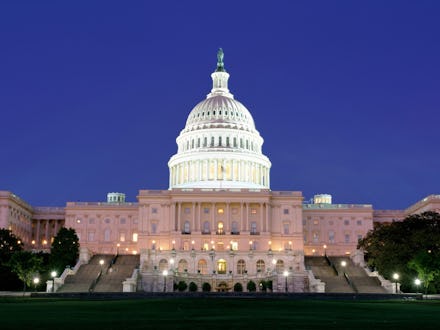One Thing Major Media Hid From You During the Debate on Syria

In October, the Public Accountability Initiative (PAI) published a paper on the conflicts of interest in the Syria debate. The report studied the backgrounds of some influential figures who strongly advocated for a military strike, and analyzed their relationships to the defense industry. According to PAI, at least 22 of the commentators and seven of the think tanks that advocated for military action in Syria had ties to companies that would profit from such a strike. If unchecked by citizens, a few key policymakers could corrupt the entire democratic decision-making process in an attempt to cater to their own interests.
On July 31, the Institute for the Study of War (ISW) published a study listing the benefits of Tomahawk missiles in a possible Syrian intervention. These missiles soon came to be viewed as the weapon of choice should the military intervene in Syria. What no one noticed was that one of the largest defense contractors sitting on ISW’s corporate council is Raytheon, a major manufacturer of the very Tomahawk cruise missile ISW advocated for.
Similarly, former Bush National Security Advisor Stephen Hadley called for military intervention in Syria. What many don’t know is that he has been on of the board of directors of Raytheon since 2009.
PAI's study highlights nothing new about policy-making in the U.S. Rather, the report reiterates what we already knew and desperately want to forget. I recall David Barstow’s 2008 New York Times series examining the role of military analysts in promoting the false Iraq narrative of the Bush Administration. Barstow showed that many of the analysts from the Iraq debate had ties to the Defense Department or the defense industry.
In a democracy, policy-making extends beyond the elected government. Commentators, think tanks, advocacy groups, businesses and so on influence policy as well. The contrast between these different sources is crucial to democratic discourse: It gives all parts of the society a voice and a stake in the system, providing the decision-makers with checks and balances.
However, when the monetary or ideological ambitions of these actors begin to conflict the interests they should be striving to protect — especially in matters of national security — their influence becomes problematic. When this occurs — and it occurs often — what is there, really, for us to say? Do these individuals or institutions really have any public accountability? Can we really blame them for advocating what they do? And if not, is this, then, an inherent problem of democracy?
All of those hoping to influence government policy have an ethical duty to this nation to be honest about their intentions, just as they have a duty to report accurate facts. We need to be able to trust our basic assumption that our sources are advocating an option because they believe its the right one. And if this is not the case, they need to be frank about it. The media plays the vitally important role as the objective informant of a democratic society and needs to protect the public discourse from such crippling corruption. Americans, especially millennials, the new-media generation, should never tire of investigating our sources of information and exposing those attempting to insult our intelligence.